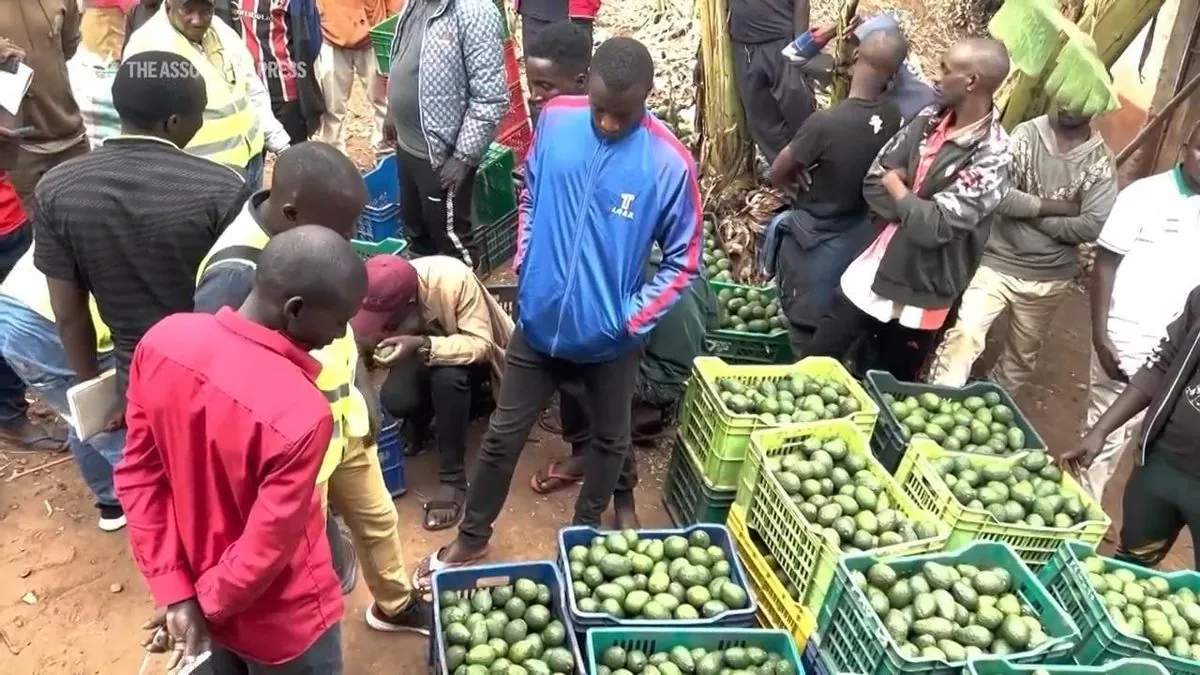In the heart of East Africa, Burundi is experiencing a quiet revolution in its agricultural sector, centered around a humble fruit: the avocado. This landlocked nation, known for its coffee and tea exports, is now turning to avocados as a potential economic game-changer.
Farmers in remote areas of Burundi have long sold their avocados to passing trucks, but recent changes have transformed these roadside transactions into meaningful economic opportunities. Just a year ago, farmers received a mere 10 cents per kilogram for their produce. Today, that figure has skyrocketed to approximately 70 cents, marking a significant improvement in their livelihoods.
This transformation is largely due to the intervention of the national government and farmers' cooperatives. Organizations like Green Gold Burundi, representing 200,000 farmers nationwide, have stepped in as intermediaries to protect growers from exploitation. These cooperatives now handle payments in U.S. dollars, depositing them directly into farmers' bank accounts.
Ferdinand Habimana, vice president of Green Gold Burundi's administrative board, emphasizes the importance of regulating avocado exports. While the government promotes avocado farming to diversify exports, Burundi's avocados are yet to be trademarked as originating from the country. This presents both a challenge and an opportunity for future growth.
The push for avocado cultivation in Burundi began in 2007 when former leader Pierre Nkurunziza promoted the fruit as a source of nutrition and income. Since then, many households have embraced avocado farming, with some varieties becoming deeply ingrained in local culture.
"The 70 cents farmers earn for a kilogram of avocados is still insufficient when exporters can fetch between $3 and $5 for the same quantity in international markets."
Despite the progress, challenges remain. The price disparity between what farmers receive and what exporters earn in international markets is still significant. However, the government is taking steps to address these issues. New regulations require foreign dealers to register with local authorities and submit supply contracts, aiming to create a more transparent and fair trading environment.
Burundi has set an ambitious target to export more than 10 million tonnes of avocados annually by 2030. This goal aligns with the country's efforts to diversify its economy and reduce reliance on traditional exports like coffee and tea. The government plans to plant 50,000 avocado trees in each of Burundi's 17 provinces, focusing on commercially successful varieties like Hass and Fuerte.
For many Burundian farmers, avocados have become a lifeline. Eric Nsabimana, a farmer in Kayanza province, anticipates earning more than $6,000 a year from avocado sales. This income has allowed him to expand his land and plant more trees, illustrating the potential for economic growth at the grassroots level.
As Burundi continues to develop its avocado industry, it faces both opportunities and challenges. The country's rich agricultural heritage, combined with its tropical highland climate, provides a solid foundation for avocado cultivation. However, issues such as infrastructure development, access to international markets, and fair pricing remain crucial areas for improvement.
The avocado revolution in Burundi is more than just an agricultural shift; it represents hope for economic diversification and improved livelihoods in one of the world's poorest countries. As farmers like Samuel Niyinyibutsa say, "Avocados mean dollars to us," highlighting the fruit's potential to transform lives and contribute to Burundi's economic development.
